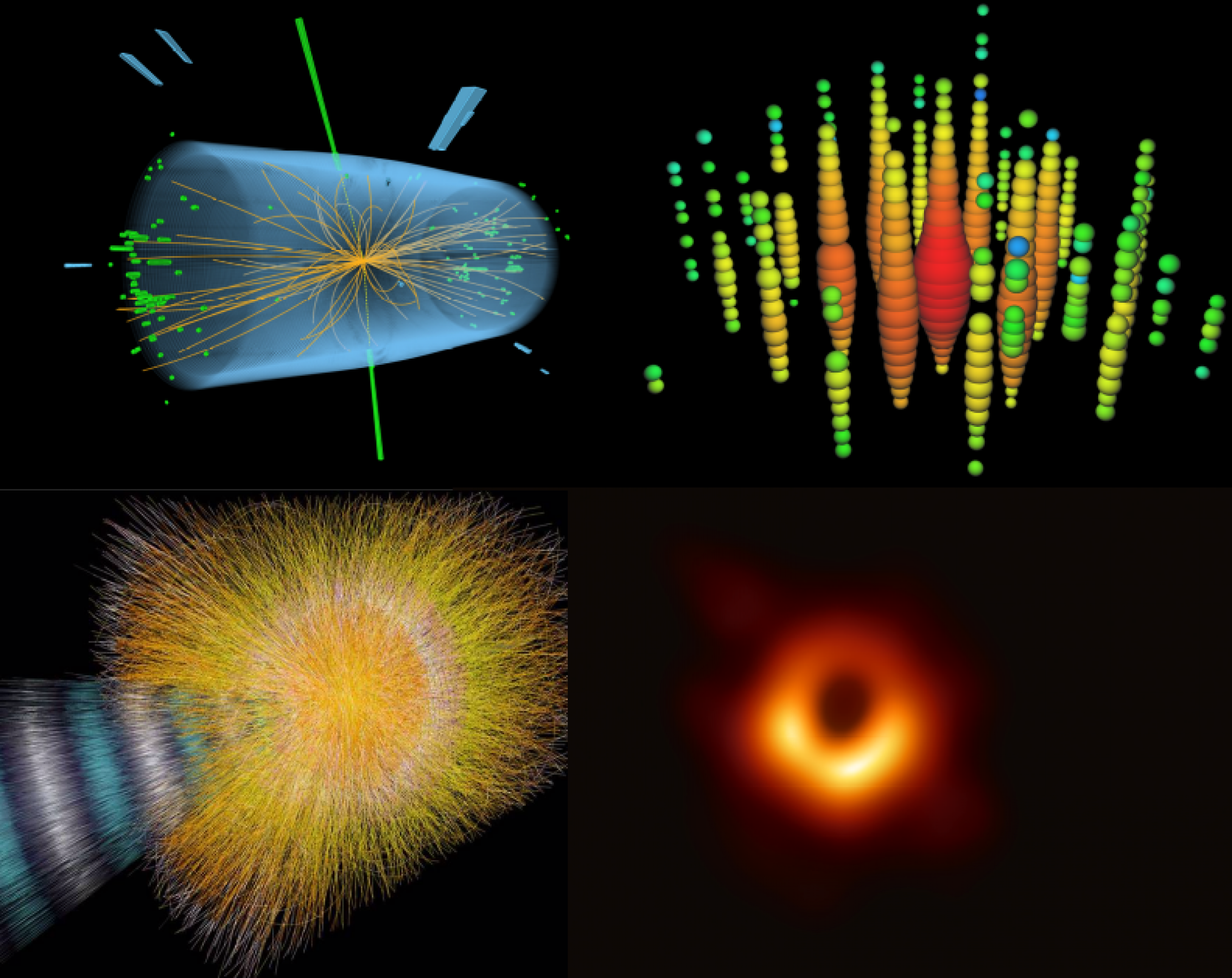January 24, 2022
How to use computer resources more effectively within experiments
The PUNCH4NFDI consortium is funded for five years
Scientific experiments on the fundamental constituents of matter and their interactions generate an increasing amount of data that must be processed and analyzed. Scientists from particle, astroparticle, hadron and nuclear physics have therefore joined forces to form a consortium. Its goal is to organize the huge data sets from many experiments in a "sustainable" way so that all data become easily findable, readily accessible, linkable as well as reusable. The participation of FIAS in the consortium PUNCH4NFDI ( Particles, Universe, NuClei, and Hadrons for the NFDI) is funded within the framework of the National Research Data Infrastructure (NFDI) for an initial period of five years with a total of almost 280,000 €.
To obtain even more accurate results, many future scientific experiments from the PUNCH area will have to process a lot more data than before. At the same time, the technical requirements for processing at high data rates are growing. Scientists are faced with the challenge of making far more complex decisions on much shorter time scales than in the past, and they will have to make more effective use of the available computer resources.
In addition to the leading applicant DESY, FIAS is also one of the 18 other grant beneficiaries of the PUNCH4NFDI consortium. It includes 23 additional partners from the Helmholtz Association, the Max Planck Society, the Leibniz Association, and universities, such as Goethe University.
At FIAS, one focus of Prof. Dr. Lindenstruth's research group has long been to further develop parallel processor systems and computer clusters. Such systems are often subject to high real-time and reliability requirements. Now, this expertise will be part of the consortium's task area 5 "Data Irreversibility". Led by PD Dr. Andreas Redelbach, a scientist working at FIAS, and Prof. Dr. Michael Kramer from the Max Planck Institute for Radio Astronomy in Bonn, the aim is to recognize patterns in detector data under real-time requirements. Ideally, only data of "interest" will be stored permanently. The most efficient data selection possible under optimal hardware utilization implements forward-looking concepts of Green IT, developed among others at FIAS.
The expected solutions could also be relevant for other, data-intensive, research fields in optimizing signal search and facilitating future discoveries. An interdisciplinary application of the statistically complex simulation techniques from the PUNCH field has already emerged in the interpretation of epidemiological data.
FIAS has also been a member since September 2021 of the non-profit association NFDI e.V. - Dedicated to promoting science through a National Research Data Infrastructure that establishes and develops overarching research data management in Germany.
At the end of the first funding period in fall 2026, there is the possibility of further funding for NFDI consortia to exploit the potential of as much research data as possible in the long term.
Further Information
Homepage: https://www.punch4nfdi.de
Contact:
PD Dr. Andreas Redelbach FIAS Ruth-Moufang-Straße 1 60438 Frankfurt am Main
phone: +49 69 798 44106
Email: redelbach_at_fias.uni-frankfurt.de
